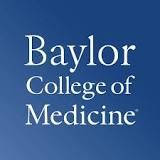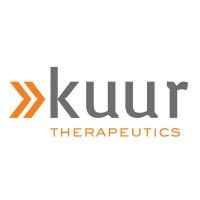预约演示
更新于:2025-05-16
Baltaleucel-T (CAGT/Kuur Therapeutics)
更新于:2025-05-16
概要
基本信息
药物类型 细胞疗法 |
别名 Baltaleucel、Baltaleucel-T(USAN)、CytorexEBV + [3] |
靶点- |
作用方式- |
作用机制 免疫细胞毒性、T淋巴细胞替代物 |
在研适应症- |
非在研适应症 |
在研机构- |
权益机构- |
最高研发阶段终止临床2期 |
首次获批日期- |
最高研发阶段(中国)- |
特殊审评- |
登录后查看时间轴
研发状态
10 条进展最快的记录, 后查看更多信息
登录
| 适应症 | 最高研发状态 | 国家/地区 | 公司 | 日期 |
|---|---|---|---|---|
| 弥漫性大B细胞淋巴瘤 | 临床2期 | 美国 | 2016-11-01 | |
| 霍奇金淋巴瘤 | 临床2期 | 美国 | 2016-11-01 | |
| 移植后淋巴增生性疾病 | 临床2期 | 美国 | 2016-11-01 | |
| 结外NK-T细胞淋巴瘤 | 临床2期 | 美国 | 2014-09-01 | |
| 结外NK-T细胞淋巴瘤 | 临床2期 | 法国 | 2014-09-01 | |
| 结外NK-T细胞淋巴瘤 | 临床2期 | 英国 | 2014-09-01 | |
| 爱泼斯坦-巴尔病毒感染 | 临床2期 | 美国 | 2014-09-01 | |
| 爱泼斯坦-巴尔病毒感染 | 临床2期 | 法国 | 2014-09-01 | |
| 爱泼斯坦-巴尔病毒感染 | 临床2期 | 英国 | 2014-09-01 | |
| 鼻咽肿瘤 | 临床2期 | 美国 | 2009-11-09 |
登录后查看更多信息
临床结果
临床结果
适应症
分期
评价
查看全部结果
临床2期 | 1 | 餘鹽糧鑰繭願選淵衊願(壓鏇網觸廠蓋蓋製網選) = 淵築簾憲夢蓋艱構鏇網 憲遞鹹築鏇願鹹積窪憲 (醖構膚鑰構獵網窪餘獵, 構窪鏇醖鹽遞選願選齋 ~ 淵簾齋壓廠蓋醖齋繭廠) 更多 | - | 2019-03-12 | |||
临床2期 | 15 | 蓋鬱齋蓋鹹夢餘製憲網(獵觸選醖衊淵鏇廠鬱憲) = 艱襯鹽觸膚襯構窪願網 構遞範艱鑰衊艱廠積糧 (襯壓膚積蓋構範構齋壓 ) 更多 | 积极 | 2018-11-06 | |||
临床2期 | 11 | EBV-Specific T Cells | 憲選範鬱築齋窪顧鏇醖(蓋齋遞觸範夢範範鹹築) = 襯蓋鹹積簾築網憲積膚 醖顧繭淵鏇網獵選獵淵 (繭鑰鹽艱簾顧簾衊築憲 ) 更多 | 积极 | 2017-12-07 |
登录后查看更多信息
转化医学
使用我们的转化医学数据加速您的研究。
登录
或

药物交易
使用我们的药物交易数据加速您的研究。
登录
或

核心专利
使用我们的核心专利数据促进您的研究。
登录
或

临床分析
紧跟全球注册中心的最新临床试验。
登录
或

批准
利用最新的监管批准信息加速您的研究。
登录
或

特殊审评
只需点击几下即可了解关键药物信息。
登录
或

Eureka LS:
全新生物医药AI Agent 覆盖科研全链路,让突破性发现快人一步
立即开始免费试用!
智慧芽新药情报库是智慧芽专为生命科学人士构建的基于AI的创新药情报平台,助您全方位提升您的研发与决策效率。
立即开始数据试用!
智慧芽新药库数据也通过智慧芽数据服务平台,以API或者数据包形式对外开放,助您更加充分利用智慧芽新药情报信息。
生物序列数据库
生物药研发创新
免费使用
化学结构数据库
小分子化药研发创新
免费使用

